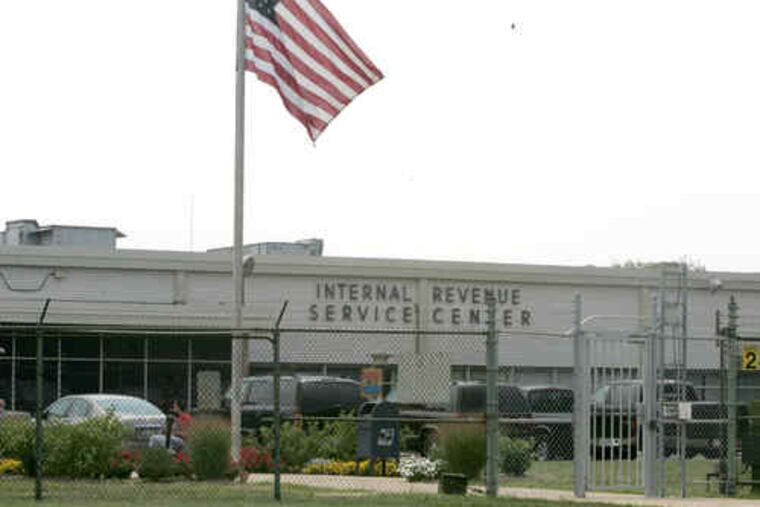PhillyDeals: United Health acquires Executive Health Resources
Health insurer United Health Group paid at least $1.2 billion for Newtown Square-based hospital consultant Executive Health Resources on Aug. 4, JPMorgan Chase & Co. analysts John Rex and Scott Hansen estimate in a report to clients. The price works out to at least 12 times Executive Health's earnings (not counting interest and tax expense) of more than $100 million a year, according to JPMorgan, implying that United Health believes the business will grow quickly.

Health insurer United Health Group paid at least $1.2 billion for Newtown Square-based hospital consultant Executive Health Resources on Aug. 4, JPMorgan Chase & Co. analysts John Rex and Scott Hansen estimate in a report to clients. The price works out to at least 12 times Executive Health's earnings (not counting interest and tax expense) of more than $100 million a year, according to JPMorgan, implying that United Health believes the business will grow quickly.
Executive Health employs about 1,000 at its headquarters and at offices in Maryland and California. The unit will be rolled into United Health's Ingenix unit.
Rex and Hansen say that includes 300 staff doctors who help hospitals figure out how to treat "medically complex" patients in order to get the biggest Medicare and Medicaid subsidies without violating federal law.
Executive Health won't comment on how much of the purchase price will go to its founder, Dr. Robert Corrato, and his insider colleagues.
The rest will enrich Boston-based ABRY Partners and other investors in Executive Health. ABRY (the name recalls founding investors Andrew Banks and Royce Yudkoff) counts the underfunded Pennsylvania State Employees' Retirement System among its investors. ABRY partner Hilary Grove didn't return a call seeking comment.
Corrato, who has degrees from the University of Pennsylvania's medical and business schools, started Executive Health in 1997, after leaving an executive job at Thomas Jefferson University. He was unavailable for comment, said Executive Health spokeswoman Michele Bowman.
Data on patients with complex medical conditions is valuable to insurers such as United Health because it helps them justify getting more Medicare and Medicaid payments as the number of people covered by those programs rises each year, says Jerry Katz, hospital consultant in the Philadelphia office of Kurt Salmon Associates.
The JPMorgan analysts concluded there's "definitely" a growing conflict of interest between United Health's role as a for-profit insurer that pays hospital claims and the role of Executive Health and other firms United Health has acquired that advise hospitals on payment strategies.
United Health representatives didn't return calls seeking comment.
Sell off
Ron Rubin's Pennsylvania Real Estate Investment Trust has agreed to sell five shopping centers in Pennsylvania and nearby states, including Creekview Shopping Center in Warrington, for $134 million to Cedar Shopping Centers Inc., Port Washington, N.Y., and investment partner RioCan Real Estate Investment Trust, Toronto.
Cedar and RioCan also agreed to pay about $66 million more for Red Rose Commons in Lancaster and Whitehall Mall near Allentown, subject to approval by PREIT co-investors and lenders.
Most of the PREIT centers were built in the mid-2000s, before the property market crashed. "We did not build them with the intention to sell any of them," PREIT spokesman Shawn Southard tells me. "It was an opportunistic transaction."
Last week, Cedar and RioCan agreed to pay Ken Goldenberg's Goldenberg Group, Blue Bell, and Jeremy Fogel's Ironwood Group, West Conshohocken, $53 million for their interest in Berks County's Exeter Commons mall, built at a total cost of $105 million. They've collected a total of $115 million from Cedar, Lowe's, Target, Giant Foods, and other companies that purchased free-standing stores outside the mall, Fogel says. The total value was less than expected due to the slow economy.
Publicly traded Cedar already owns Shore Mall near Atlantic City and a dozen more developments. It's losing the Internal Revenue Service as a tenant at its Roosevelt Boulevard center when the IRS moves to Brandywine Realty Trust's renovated former 30th Street post office.
"We are very much committed to eastern Pennsylvania, it's almost half of our portfolio," Cedar boss Leo Ullman tells me. "We like its stability, and the barriers to entry," given the relatively high cost of property and local-government zoning complexity that makes it hard to build new stores here.
Ullman adds that Cedar has until now focused on supermarket-based neighborhood centers. The PREIT deal with Rubin, whom he's known for 30 years, "gives us much better exposure" to national store chains.